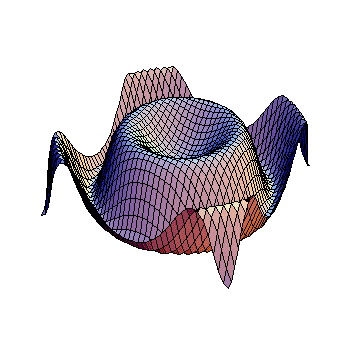What is the solubility of solids in water?
1 Answer
It depends really, some solids like
In general, you can have some rule of thumbs, but unless you have experience with the solid proper, you're likely to not know firsthand whether it'll solubilize or not.
Explanation:
Some of these rules of thumb:
-
No salt (or base) of an alkali metal (e.g.:
#Na^+# ,#K^+# ,#Li^+# ) or ammonium (#NH_4^+# ) isn't soluble. -
No salt of
#NO_3^-# is insoluble. -
Big, organic molecules have a tendency to be insoluble (or inmiscible) in water unless they have a lot of amine or carboxyl groups, (or at least enough in proportion to the whole molecule)
-
If said big, organic molecule is soluble and anionic, pretty much any heavy metal (sometimes even "light" metals like
#Ca^(+2)# or#Mg^(+2)# will precipitate it) -
#Ag^+# will precipitate pretty much any anion except#F^-# and#SO_4^(-2)# -
#PO_4^(-3)# ,#S^(-2)# and#CO_3^(-2)# will precipitate with most metals -
Besides
#Ag^+# ,#Hg_2^(+2)# and#Pb^(+2)# also have a tendency to make sparingly soluble salts with halides (#Cl^-# ,#Br^-# and#I^-# ) -
If the salt has a cationic metal, it will be dissolved by a complexating agent, e.g.:
#AgCl# which is insoluble will be soluble in#NH_4Cl# or#NH_3# since the latter complexates the silver. -
If the anion is the conjugated base of a weak acid, that is, if it comes from the dissociation of a weak acid, then the salt will be soluble in low pH.
-
The above also applies to
#CrO_4^(-2)# who despite not being a conjugated base, will react with protons to make#Cr_2O_7^(-2)# -
And to bases of the format
#M(OH)_n# where#M# is a non-alkali metal. -
If it has a metalic cation that isn't an alkali metal, it will most likely create a new precipitate in high pHs.
Of course, it's important to remember that all of these rules of thumbs, will have their ocasional exceptions.
Usually, there are tables that will tell you how soluble something is, but instead of solubility they'll tell you the
If it isn't in the table, then it's soluble; usually the kps will be numbers like
This will only work for perfect pure water though.

